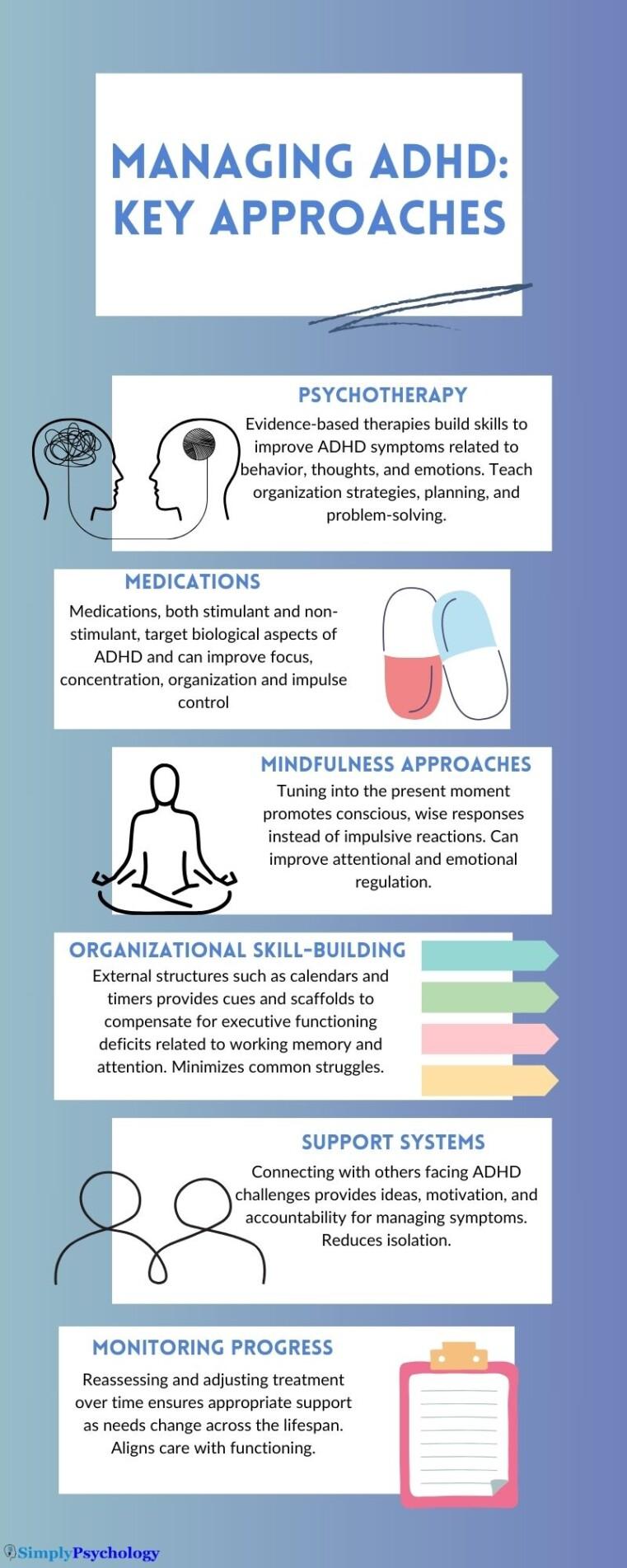Navigating ADHD Care: Medicare Insights in the Trump-Kennedy Era As the vibrant tapestry of American healthcare continues to evolve, the intersection of political philosophy and medical care becomes ever more critical, particularly for those grappling with attention deficit hyperactivity disorder (ADHD). From the era of Trump’s administrative reforms to the Kennedy legacy of mental health advocacy, the lens through which we view ADHD care under Medicare reveals not just a patchwork of policies but a complex narrative of access, treatment, and understanding. This article seeks to illuminate the paths carved by both contemporary leaders and historical figures, exploring how their ideologies shape the landscape of ADHD services today. As we delve into Medicare’s role and its implications for individuals affected by ADHD, we aim to provide insights that empower families and practitioners alike, navigating a system that is as intricate as it is essential. Join us on this journey through the corridors of care, where politics meets practice and every insight counts.

Exploring the Evolution of ADHD Care Under Medicare Reforms
The landscape of ADHD care has undergone significant transformation amid recent Medicare reforms, particularly during the Trump-Kennedy era. Patients and providers are now experiencing a paradigm shift that prioritizes accessibility, with policy adjustments aiming to enhance treatment availability. A key feature of these reforms is the incorporation of telehealth services, which not only facilitates remote consultations but also broadens the reach of specialized ADHD care. This digital expansion enables practitioners to engage with patients who may have previously faced barriers to in-person visits, such as geographic limitations or scheduling conflicts.
Furthermore, the emphasis on integrating behavioral health services into primary care settings has become a hallmark of this reform era. The following aspects highlight this evolution:
- Collaborative Care Models: Encouraging collaboration between primary care and mental health professionals.
- Policy Adjustments: Streamlined billing processes to simplify access to ADHD treatments.
- Awareness Campaigns: Initiatives aimed at educating the public on ADHD recognition and management.
With these reforms, Medicaid plans have begun to offer support that wasn’t previously accessible, fostering a more holistic approach to treatment that recognizes the complex needs of individuals with ADHD. The dynamic interplay between these reforms and patient care is indeed a promising development in navigating ADHD management in the contemporary healthcare landscape.

Understanding Coverage Options for ADHD Treatment in the Modern Era
As the landscape of ADHD treatment evolves, understanding the various coverage options available becomes crucial for those seeking effective care. Insurance plans, including Medicare, have expanded their frameworks to provide more comprehensive services. Beneficiaries can now explore a range of treatment modalities that encompass traditional medication management, therapy sessions, and even innovative interventions such as coaching and telehealth. Among the vital aspects to consider are:
- Medication Coverage: Many Medicare plans cover stimulant and non-stimulant medications commonly prescribed for ADHD.
- Therapeutic Services: Coverage often includes behavioral therapy, counseling, and support groups.
- Integrated Care Models: Some plans support multidisciplinary teams that offer holistic treatment approaches.
In this era, it’s also important to weigh the nuances of out-of-pocket costs and potential limitations on providers. Each Medicare Advantage and Part D plan presents unique stipulations regarding formularies and in-network services, impacting patient access to necessary treatments. For clarity, consider the following table as a reference to showcase key differences in coverage:
| Plan Type | Key Features | Considerations |
|---|---|---|
| Medicare Part A | Hospital care & inpatient treatment | Limited outpatient ADHD services |
| Medicare Part B | Outpatient services, doctor visits | Requires copayment for visits |
| Medicare Part D | Prescription drug coverage | Varied formularies, may limit certain medications |
| Medicare Advantage | All-in-one plans that cover A, B, and D | Network restrictions may apply |
A comprehensive understanding of these options enables patients and families to make informed decisions tailored to their individual needs. By leveraging resources available through Medicare and understanding specific coverage details, individuals can better navigate their ADHD care journey.
For many individuals seeking specialized care for ADHD, the landscape can be riddled with obstacles. Accessing the right services often requires navigating a complex web of insurance policies and provider networks. In this context, understanding your Medicare options becomes essential. Beneficiaries may find that while some services are covered, others—especially those provided by specialists—can limit their choices. Here are some common hurdles faced:
- Geographic Limitations: Availability of specialists varies significantly by region.
- Provider Acceptance: Not all specialized providers accept Medicare, which can limit options.
- Cost Barriers: While Medicare covers many treatments, out-of-pocket expenses can still be substantial.
To illustrate the coverage landscape for ADHD care under Medicare, consider the following table that highlights key features:
| Service Type | Medicare Coverage | Potential Costs |
|---|---|---|
| Psychiatric Evaluation | Covered with certain provider requirements | 20% after deductible |
| Individual Therapy Sessions | Generally covered | 20% after deductible |
| Medication Management | Covers many medications | Varies based on plan |
Furthermore, addressing these challenges often requires proactive engagement from beneficiaries. Joining support groups or forums can provide valuable insights and shared resources from others who are navigating similar paths. Additionally, leveraging online tools to locate providers and understanding changes in Medicare policies can empower individuals to make informed decisions about their ADHD care. By staying informed and persistent, individuals can better navigate the murky waters of accessing specialized care.
Strategies for Advocating for Comprehensive ADHD Support Through Medicare
Establishing strong relationships with policymakers can also be critical to effecting change. Create a collaborative approach by networking with mental health professionals, educators, and families affected by ADHD. Attend local town hall meetings and advocate for policy changes focused on mental health support. Consider developing a policy proposal outlining specific services that should be included in Medicare coverage for individuals with ADHD, such as:
- Comprehensive evaluations by mental health specialists
- Therapeutic services, including counseling and coaching
- Access to medication management and educational resources
| Advocacy Strategies | Description |
|---|---|
| Data Collection | Gather statistics on ADHD prevalence and effects. |
| Community Engagement | Enhance outreach through local advocacy groups. |
| Policy Networking | Build relationships with local policymakers. |
| Proposed Services | Outline specific care needs in a policy proposal. |
Q&A
Q&A: Navigating ADHD Care in the Medicare Landscape of the Trump-Kennedy Era Q: What is the significance of the Trump-Kennedy era when discussing ADHD care and Medicare? A: The Trump-Kennedy era symbolizes a moment of transformative change in American healthcare policies, particularly concerning mental health. This period has seen heightened awareness and evolving approaches to conditions such as ADHD, making it a vital time for exploring how Medicare and related programs can better support individuals with ADHD. Q: How does Medicare currently support individuals diagnosed with ADHD? A: Medicare provides coverage for a range of mental health services, including diagnostic assessments and treatment options for ADHD. While coverage varies, beneficiaries may receive medications, therapy sessions, and educational support, which are crucial for effective management of ADHD symptoms. Q: Are there specific challenges faced by ADHD patients when navigating Medicare? A: Absolutely. Many patients encounter issues such as limited access to specialized providers, misunderstandings regarding coverage limits, and the necessity of obtaining prior authorizations for certain treatments or medications. Additionally, beneficiaries often face the challenge of finding practitioners who accept Medicare. Q: What should ADHD patients consider when choosing a Medicare plan? A: It’s essential for ADHD patients to evaluate plans based on their specific needs. Patients should examine coverage for ADHD medications, therapy sessions, and any necessary assessments. Factors like deductibles, co-pays, and the availability of preferred providers in the network can significantly impact their overall care experience. Q: How has public perception of ADHD influenced Medicare’s approach? A: Public perception around ADHD has shifted, with increased advocacy and awareness leading to more extensive discussions about mental health. This shift encourages policymakers to consider more inclusive legislation that addresses ADHD care within Medicare, recognizing its impact on overall well-being and quality of life. Q: What resources are available for patients seeking guidance on ADHD care under Medicare? A: Patients can refer to organizations like the National Institute of Mental Health (NIMH) and the American Psychiatric Association (APA) for guidance on ADHD treatment. Additionally, Medicare’s official website provides comprehensive information on coverage specifics. Local advocacy groups and support networks also often offer invaluable assistance in navigating Medicare options. Q: What hope do we have for the future of ADHD care within Medicare in the current political climate? A: As healthcare policies continue to evolve, there is a promising trend towards improving access to mental health care, including ADHD treatment. Increased advocacy, coupled with ongoing research and public discourse, may lead to legislative changes that enhance the support systems available for individuals with ADHD, ensuring equitable access to care through Medicare. Q: How can individuals advocate for better ADHD care under Medicare? A: Individuals can play a crucial role by sharing their experiences, participating in advocacy groups, and communicating with policymakers. By raising awareness about the challenges faced in ADHD care and pushing for more comprehensive solutions, individuals can contribute to shaping a more inclusive healthcare environment in the Medicare system.
The Conclusion
As we conclude our exploration of navigating ADHD care through the lens of Medicare during the Trump-Kennedy era, it becomes clear that the landscape is both complex and evolving. The intersection of policy, healthcare accessibility, and individual experiences speaks to a broader narrative of support for those living with ADHD. As we look ahead, it’s vital for caregivers, patients, and policymakers alike to remain informed and engaged. Understanding the nuances of Medicare coverage can empower individuals to access the care they need, helping to bridge gaps and foster a more inclusive approach to mental health. By staying attuned to ongoing developments, we can pave the way for improved outcomes and greater awareness in ADHD care. The journey may be intricate, but with continued dialogue and advocacy, a brighter path lies ahead for those affected. Let us move forward with a commitment to collaboration, ensuring that the rhythm of care is attuned to the needs of all individuals navigating ADHD.
Dr. Jonathon Preston is a respected mental health specialist dedicated to helping individuals overcome challenges. With advanced training in psychology and decades of experience in the mental health field.
